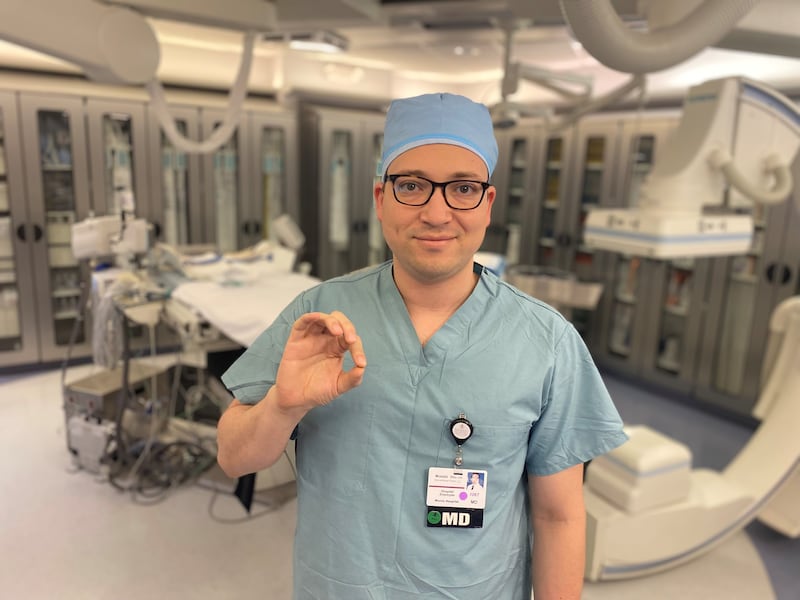Morris Hospital is providing a new procedure to improve the quality of life and reduce hospitalization for people living with heart failure.
According to a Monday news release, the new procedure is called CardioMEMS HF System, and it involves implanting a tiny sensor about the size of a paper clip into the pulmonary artery during a 30- to 45-minute, right-heart catheterization procedure performed in the Morris Hospital Cath Lab.
Once in place, the device is used to capture a daily pulmonary artery pressure reading that is wirelessly transmitted to the heart failure team at Morris Hospital, according to the release.
Dr. Mostafa Ghanim, an interventional cardiologist who performs the procedure, said an increase in pulmonary artery pressure readings can be a sign that the patient is starting to retain fluid and treatment adjustments are needed, allowing the heart failure team to intervene sooner. For patients, this can mean fewer hospital stays, less anxiety about the condition and the ability to manage heart failure more effectively from home.
“Managing heart failure poses significant challenges for both patients and clinicians,” Dr. Ghanim said. “By the time there are noticeable symptoms that the condition is worsening, the patient often requires hospitalization and likely has already experienced a drop in heart function. By remotely monitoring pulmonary artery pressure readings with the CardioMEMS system, we can detect worsening heart failure about two to three weeks sooner than physical symptoms appear. This allows us to intervene early, improving the patient’s condition, quality of life, and reducing the likelihood of hospitalization.”
Heart failure is a serious and progressive condition that occurs when the heart no longer pumps enough blood to meet the body’s needs, according to the release.
For information about heart failure management and CardioMEMS, call Morris Hospital Cardiovascular Specialists at 815-705-1000.

:quality(70)/s3.amazonaws.com/arc-authors/shawmedia/744709d3-0d08-4f13-a8f2-47f3f8ea9de6.png)